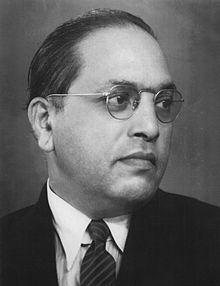
Quotes of B.R. Ambedkar
Religion must mainly be a matter of principles only. It cannot be a matter of rules. The moment it degenerates into rules, it ceases to be a religion, as it kills responsibility which is an essence of the true religious act.
– B.R. Ambedkar
What are we having this liberty for? We are having this liberty in order to reform our social system, which is full of inequality, discrimination and other things, which conflict with our fundamental rights.
– B.R. Ambedkar
A great man is different from an eminent one in that he is ready to be the servant of the society.
– B.R. Ambedkar
A people and their religion must be judged by social standards based on social ethics. No other standard would have any meaning if religion is held to be necessary good for the well-being of the people.
– B.R. Ambedkar
History shows that where ethics and economics come in conflict, victory is always with economics. Vested interests have never been known to have willingly divested themselves unless there was sufficient force to compel them.
– B.R. Ambedkar
For a successful revolution it is not enough that there is discontent. What is required is a profound and thorough conviction of the justice, necessity and importance of political and social rights.
– B.R. Ambedkar
Religion must mainly be a matter of principles only. It cannot be a matter of rules. The moment it degenerates into rules, it ceases to be a religion, as it kills responsibility which is an essence of the true religious act.
– B.R. Ambedkar
The Muslim Society in India is afflicted by the same social evils as afflict the Hindu Society. Indeed, the Muslims have all the social evils of the Hindus and something more. That something more is the compulsory system of purdah for Muslim women.
– B.R. Ambedkar (1)
This high-flown and ingenious sophistry indicates why these institutions were honoured, but does not tell us why they were practiced. My own interpretation is that they were honoured because they were practiced. Any one slightly acquainted with the rise of individualism in the 18th century will appreciate my remark. At all times, it is the movement that is most important; and the philosophies grow around it long afterwards to justify it and give it a moral support.
– B.R. Ambedkar
“My study of the Caste problem involves four main points: (1) that in spite of the composite make-up of the Hindu population, there is a deep cultural unity; (2) that caste is a parcelling into bits of a larger cultural unit; (3) that there was one caste to start with; and (4) that classes have become Castes through imitation and excommunication.”
– B.R. Ambedkar

Comments are closed.
*/